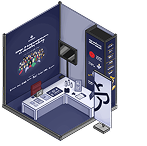We invite researchers to help us identify high-impact security vulnerabilities that could affect user security, financial integrity, or the confidentiality of our systems. The following categories are our top priorities:
1 - Bulk Data Exposure
Any method that allows unauthorized access to large volumes of user data is considered critical. This includes:
✔ Personally Identifiable Information (PII) (e.g., names, emails, phone numbers, KYC data).
✔ Transaction history, balances, or account details beyond intended visibility.
✔ API misconfigurations that allow mass data retrieval through enumeration or unauthenticated access.
✔ Improper access controls on dashboards, logs, or internal tools leading to bulk data exposure.
🚫 Out of Scope: Simple email/username enumeration, verbose error messages, or data exposure without a direct impact.
2 - Horizontal Privilege Escalation (Sandbox Only)
Vulnerabilities that allow unauthorized access to another user’s account, data, or transactions are critical security concerns. This includes:
✔ Viewing another user’s personal details, transaction history, balances, or payment methods.
✔ Modifying another user’s account settings, stored assets, or performing actions on their behalf.
✔ Gaining unauthorized access to restricted admin or privileged functions.
⚠️ IMPORTANT: Horizontal privilege escalation testing is only allowed in the Sandbox environment.Unauthorized access to real user accounts in production is strictly prohibited.
3 - Trading & Balance Manipulation
Our financial systems must maintain transaction integrity. We are interested in any method that artificially alters balances or transactions. Key concerns include:
✔ Artificially inflating wallet balances (e.g., receiving more funds than transferred).
✔ Duplicating transactions or executing unintended reversals.
✔ Altering exchange rates to gain an unfair advantage (e.g., slippage manipulation, front-running attacks).
✔ Bypassing deposit, withdrawal, or transaction limits.
✔ Any issue affecting Uphold’s balance sheet, reserves, or trade settlement process.
🚫 Out of Scope: Minor rounding errors, delayed balance updates without financial impact, speculative scenarios without a reproducible exploit.
Our ‘Unicorn’ Bounty Bonus Program
Uphold is committed to fairly compensating security researchers for high-impact discoveries.
For severe vulnerabilities that could result in major financial, operational, or reputational damage, we may offer a discretionary bonus of up to €25,000. Rewards are assessed based on the Severity assessment chapter metrics explained below. Multi-step attacks combining multiple vulnerabilities may qualify for higher payouts.























